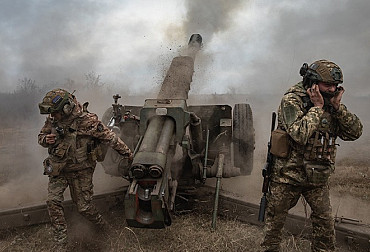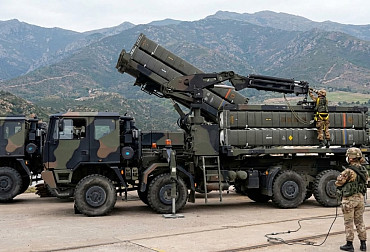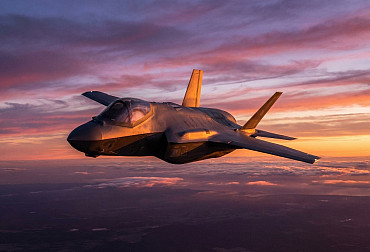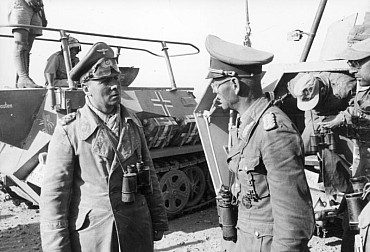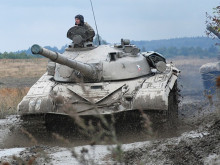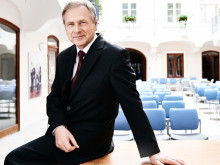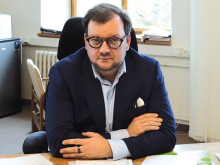Tomáš Pojar: If the new government fails to increase the defense budget, there is a risk of conflict with Trump
We bring you a review interview with the first National Security Advisor, Tomáš Pojar, whose tenure in this role is coming to an end. What has he achieved in his position, and what can the Czech Republic be proud of? What can we be grateful to U.S. President Donald Trump for? And can we expect a Slovakian scenario with the new coalition? The strongest voice in the Czech security community answered these and other questions.

In our interview before Trump was elected, you indirectly suggested that you wanted him to win. After ten months of Donald Trump leading the US, would you change your previous support in any way? After everything that has happened on the global stage during those ten months?
I would probably see it the same way. I think that Trump, with all the problems and turbulence that his actions bring, is still the better choice. With Trump, you have to work with him, stay in contact with him, explain certain things to him so that you don't get steamrolled by the other, hostile side. It requires a lot of effort, but at the same time, he is a decisive president, and with him, America has more weight than it would, in my opinion, with other leadership in these turbulent times. It's definitely not easy, but that's the reality. And I think the alternatives would be worse.
How challenging were those ten months in terms of foreign policy? What had to change at the EU and NATO levels for the West to keep Trump's attention on issues that are key to us, such as support for Ukraine?
Europeans simply had to start trying harder. Trump was already putting pressure on Europe during his first term, especially when it came to defense spending, and as a result, European countries began to gradually increase their defense budgets. In his second term, the pressure is even more intense, not only to invest in our own defense and be able to stand on our own two feet to a certain extent, but also to take on more responsibility for helping Ukraine. For us, this is a war in Europe, in our immediate neighborhood, while for the US, it is just one of many conflicts it has to deal with.
We had to show Donald Trump that we are serious and that we are a reliable partner. It has been clear for some time that transatlantic relations would be recalibrated, partly because of the US pivot to other parts of the world, and partly because of its internal orientation and reduced willingness to act as the global policeman. If transatlantic cooperation in business, technology, and security is to continue, we simply have to take on a greater share of the responsibility.
However, recalibration does not only concern defense, but also the economy. And the agreement that was ultimately reached is, in my opinion, the best possible outcome. Because if we are not self-sufficient in defense, we cannot dictate too much in trade. If we had invested more in our own defense over the last 30 years, our position would be better today. But if we don't want to pay in one area, we will end up paying elsewhere.
Going back to Trump – in economics, there is a general rule that companies need a predictable environment. They don't want one decision to apply on Monday and then everything to be different on Tuesday. When we apply this to foreign policy, Trump has stirred up international waters. One day he supports Ukraine, the next he doesn't; one day he pushes, the next he backs down. It seems like complete chaos. Is there any consistency in his approach?
Someone described it well: with Trump, every day is a new day. And that's how we need to look at it. We shouldn't focus on individual fluctuations, but look at the long-term picture – what he actually wants to achieve – and act accordingly. And when we look at it from a European perspective, it wasn't that turbulent after all. Yes, there were threats of tariffs, they were introduced at times, then they disappeared again. There were statements about Greenland. But did it actually happen? No, it didn't.
So, for me, the key is to stay calm, be more independent, know what we want, and stand firmly on our own two feet. If we do that, we don't have to collapse with every change of tone or every improvised step.
And is it okay to welcome Russian dictator Putin to Alaska on a red carpet?
When it comes to political symbolism, such as state visits and grand receptions, it's simply part of the job. America is a superpower. When the American president insists on such things, it's up to us whether we adapt or not. I'm in favor of adapting. It means a lot to him, and it doesn't really cost us anything.
Returning to the election campaign, it seemed to me that there was no one in the government or the coalition who was a champion and guarantor of security as such. And you yourself mentioned earlier that, in connection with aid to Ukraine, the amounts actually sent were much higher than was communicated, but for some reason this was not made public. It was as if communication on the topic of security was underestimated, even within the country – including the fear of Ukrainians among part of society.
I think that security was not the main topic of the elections because we live in a safe country. The real topic of the elections was rather the relationship with the government. And in Czech Republic, there is a long-term trend that people want change. If we look at the last 35 years, no one has defended their mandate except Václav Klaus – and even he only formed a minority government that lasted two years. Czechs are simply constantly dissatisfied and want change, and this is especially true of the more educated part of the electorate.
The main theme of the election was the economy. What I think failed was convincing citizens of the government's economic vision and competence. Not the issue of security. That wasn't a problem because Czech Republic is a safe country. Even Ukrainian refugees weren't a real problem. On the contrary, they are the best integrated in Europe.
Is your tenure as the first national security advisor coming to an end with the resignation of Petr Fiala's government?
From the outset, my mandate was tied to the mandate of this government. If the elections had turned out differently, I would have resigned as well. And even if the same prime minister had remained and a "new-old" government had been formed, in my view, the national security advisor should have been reconfirmed, because the government has a new mandate and each time stands on a slightly different – or even completely different – foundation. I never saw this position as permanent service to the state. I didn't want to take on the role of a full-time civil servant again. And even though Putin's attack on Kyiv effectively forced me to do so, I still saw it as a temporary commitment – for the duration of this government.
Looking back, what three things did you succeed in doing in this role?
First, the way we responded to Ukraine's military aid. What we achieved is, in my opinion, a phenomenal and unequivocal success. Second, managing the refugee crisis. My role in this was limited, but as a state and as a society, we handled it exceptionally well. And third, cutting ourselves off from Russian energy and managing the energy crisis despite all the problems. This is also related to the shift in nuclear energy, both in the large nuclear tender and in small modular reactors. When I compare this with what was happening ten or twenty years ago, the shift over the last four years has been significant.
And which ones, on the other hand, were not possible to fulfill?
It is always relative, but I think that the modernization of the Czech army could have gone even further. A huge amount of work has been done and many projects have moved forward, but when it comes to overall systemic modernization and readiness for future purchases and the transition to a new era, there is still a lot of work to be done. I wish we were further along in this regard.
Another issue is related to defense—for example, air and anti-aircraft protection. Objectively speaking, we are very weak in this area; we are practically unprotected, and these are areas that require huge investments. And that is precisely the part of the modernization where I think we could have gone further.
And if I take a broader view, even though it is not entirely related to my role, the digitization of the state is simply below expectations. Just look at the elections and the fact that we are unable to create even basic applications reliably or systems that should be a matter of course. I am not mentioning this as my own failure, but as an illustration of a broader problem facing the state, which is ultimately also related to security and defense capabilities.
What do you expect from the new ANO-led government in terms of foreign policy and security? I noticed that the policy statement mentions a return to spending 2% of GDP on defense, with the addition that audits and efficiency are to be addressed first and foremost. But when I think of Trump, who pushed for 3.5% or even 5% including infrastructure and other expenditures, this could be a major problem, couldn't it?
I think it will be a problem. It will be a problem in relation to the United States, a problem with allies, and a problem with Northern Europe—that is, countries that are richer, more powerful, and spend significantly more on defense. And it will be a problem for the Czech army: for its modernization, for its ability to defend itself and contribute to collective defense, and even for the most basic things, such as building air defense. The money will simply be needed. There is no doubt about that. The question now is whether this is just rhetoric from the incoming government majority or reality. It will probably be in the budget, but I sincerely hope that the government realizes what debates are taking place in Europe and what is at stake today.
I am deeply convinced that countries that invest more in defense are often richer, not only safer, but also economically stronger. We have a significant part of the defense industry at home. When we invest in defense, a large part of the money stays in our economy. It is an engine of innovation and growth. If we do not do this, we will gradually fall to the level of the Balkans and Southern Europe.
For me, defense, investment in security, and the economic position of a country are interconnected. Either we go northwest, where Europe is richer and growing stronger in the long term, or we head south toward the Balkans. And the gap between north and south is widening. If we look at Slovakia and Hungary today, their economies are not models we should want to follow.
And in this context, what do you expect in terms of support for Ukraine? Can we expect to behave like Slovakia and Hungary? Maybe we will "sell" something to Ukraine, but that's where it ends...
I think the government will want to move in the direction of Slovakia and Hungary. This will put us in the same block. Whether we will end up completely on the same level as Slovakia and Hungary cannot be said with certainty at this point. There is still a chance that we will not. But the fact that others will place us in this group and that we ourselves will at least partially join it is simply a reality. And it is a consequence of the choice that people have made.
When we spoke before Trump took office, you said that Putin was waiting for the new US president and that there was a chance that he would then assess the situation and perhaps agree to a ceasefire. A few months ago, it looked like that might happen, but now it doesn't. How do you see it today?
I still expect the same thing, that a truce will eventually happen. And it will happen when Putin calculates that it is more advantageous for him than continuing the fighting for months to come. I don't think he is thinking in terms of three or four years of intense warfare. Rather, he is thinking in terms of months. He still has soldiers, he has ammunition, the economy is limping along but still functioning, America is not putting enough pressure on him, he hopes to somehow "work" Trump and try to gain more territory in a few months to be in a better negotiating position. But I don't know exactly when that will happen. I didn't expect the war to last almost four years. Now someone said that it has lasted longer than the Soviet Union's participation in World War II. It is a long war of attrition and is far from over. It is exhausting for both sides, but Russia is exhausting itself voluntarily. And if it is exhausting itself both humanly and economically, I have no problem with that. A strong and aggressive Russia is worse than a weakened Russia.
In our last interview, you mentioned for the first time that you had joined the active reserves, motivated both by moral reasons and by a desire to find out how it works from the inside. What did you discover?
I found that there is enormous scope for the army to open up to people who want to help, whether in the active reserves or in other forms of involvement. For the Czech Republic, the voluntary route is much better than the compulsory one. And the army does not even have the capacity to make effective use of all those who volunteer, let alone make sense of imposing something across the board. I see it in the people around me: they volunteer, often in much better physical condition than me, young, ready to serve, and the army is unable to make use of them.
Does this point to a systemic problem?
The army needs a lot of skills that it does not have and will not have, and it must be able to attract them from outside. But these people encounter the same bureaucracy, rigidity, and impenetrability as in other state institutions. Until we learn to better connect the activities of the state, business, and universities, and until the army becomes more open, we will continue to lag behind. Modern military systems are developing extremely rapidly. Ukraine and the Middle East show that innovation is a continuous process—not something you order, receive in ten years, and then use for twenty years. In five years, the battlefield will be elsewhere and the technology will be completely different. And our biggest obstacle? Surprisingly, it is not money. It is rigidity and systemic inflexibility. And the inability to quickly absorb change.
For example, we need to give the army space to test new things together with companies. Companies often want someone to try out their technology in practice, and in the end, it's a mutually beneficial process.
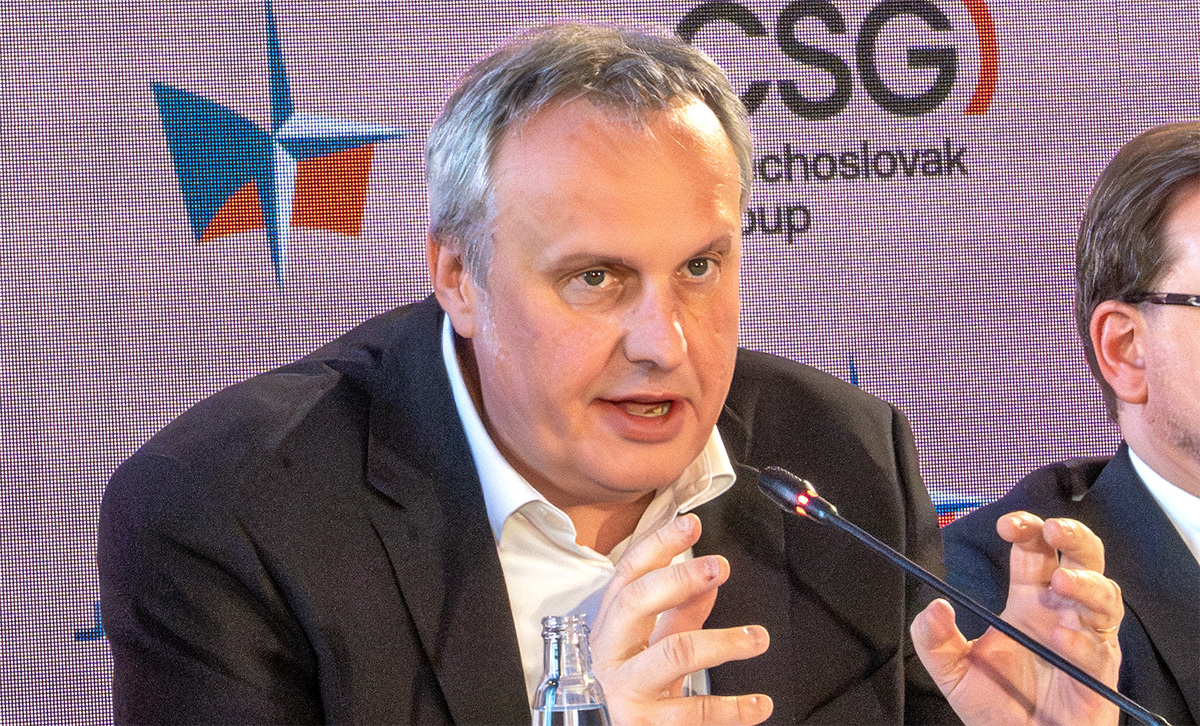
Can you give an example?
In the past, I worked for an Israeli company that operates training grounds and shooting ranges in cooperation with the army. Experience from actual combat is transferred to training, and those who have been in combat must be there. When the army purchases a new type of rifle or grenade launcher, the company participates in the process, integrates the system, and the process is constantly evolving. In today's world of drones and anti-drone systems, this is a permanent and dynamic development. However, our insularity prevents this. Rules and bureaucracy often block cooperation with companies, so they have nowhere to test and innovate. The army then lacks the experience and capacity it needs. The more countries allow such cooperation, the better the results they achieve.
Here, we are always afraid that someone will make money from it. But the point of business is to make money. Of course, it must not be associated with corruption or based on blatant margins; it must be done by the book. Nevertheless, it often happens that when a Czech arms manufacturer stands to make a profit, it arouses envy, whereas when the German company Rheinmetall makes a profit, it is considered acceptable. This is sad and self-destructive. Instead of welcoming the growth of wealth and innovation here, we would rather see the money flow elsewhere, to our neighbors or to the other side of the world. That is wrong.











